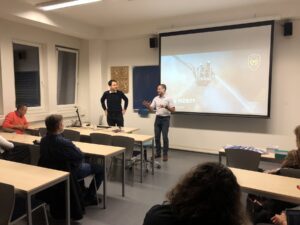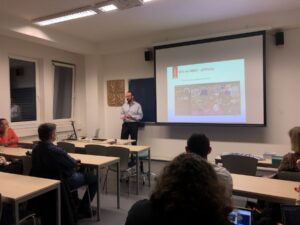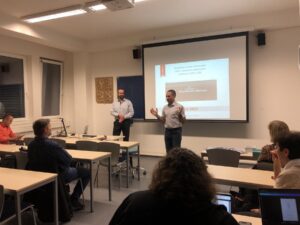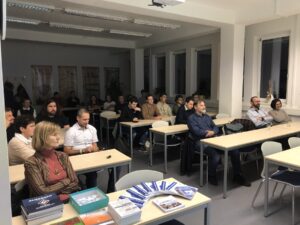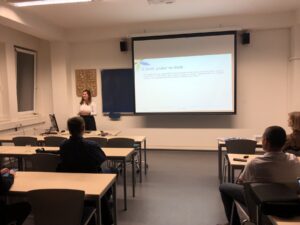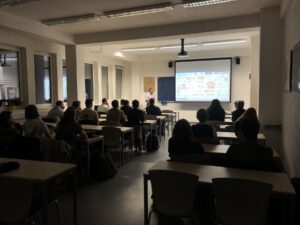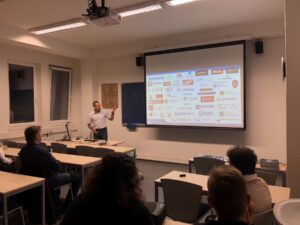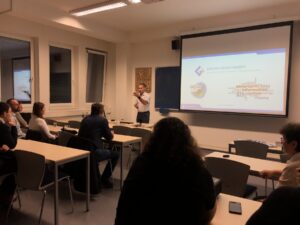News
GISday 2024
On Wednesday, November 20, 2024, our department traditionally joined the global GISday event. As part of the traditional morning-afternoon program, we welcomed high school students. If you are interested in coming next year, we will be happy to welcome you too, more information here.
A novelty this year was the early evening part dedicated to graduates, colleagues and the public, combined with a tour of the department. Current events at the department were presented by Assoc. Prof. Burian, and representatives of the Olomouc Region (Mgr. Dagmar Valchařová), the Olomouc City Hall (Mgr. Miloslav Dvořák) and the Olomouc Region Fire Rescue Service (Mgr. Josef Koláček) outlined their experiences and ties to the department. Thank you all for participating, and thanks to Patricia Dominiková for the photos.
New papers from our production
OLOphoto 2024
A traditional photo shoot of graduates of our department, who work in various spheres within the GIS community in the Czech Republic as well as abroad, took place within the GIS Esri 2024 conference.
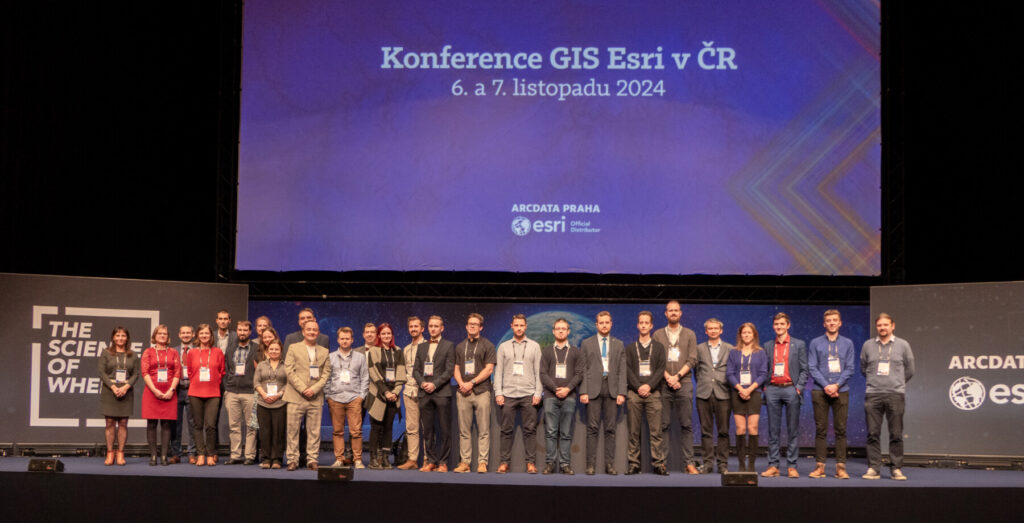
Henry Johns Award 2023 goes to department
The Henry Johns Award for 2023, presented annually by the British Cartographic Society in collaboration with Lovell Johns for the most significant article published in The Cartographic Journal, has been awarded this year to a team of authors led by Dr. Markéta Beitlová.
The editorial board of The Cartographic Journal selected the winning article, “Verification of Cartographic Communication Models Using Detection of Map Reading Strategies Based on Eye Movement Recording,” authored by Markéta Beitlová, Stanislav Popelka, Martin Konopka, and Karel Macků, from over twenty nominated submissions.
This article was recognized for its significant empirical findings, which contribute to a better understanding of the map-reading process and encourage a revision of theoretical frameworks in cartographic communication.
The award also includes a monetary prize, which the team has decided to donate to the SOS Floods Czech Republic campaign, organized by the non-governmental nonprofit organization People in Need.
The authors would like to extend their thanks to all the former students who participated in the experiment and provided their maps as stimuli for the study.
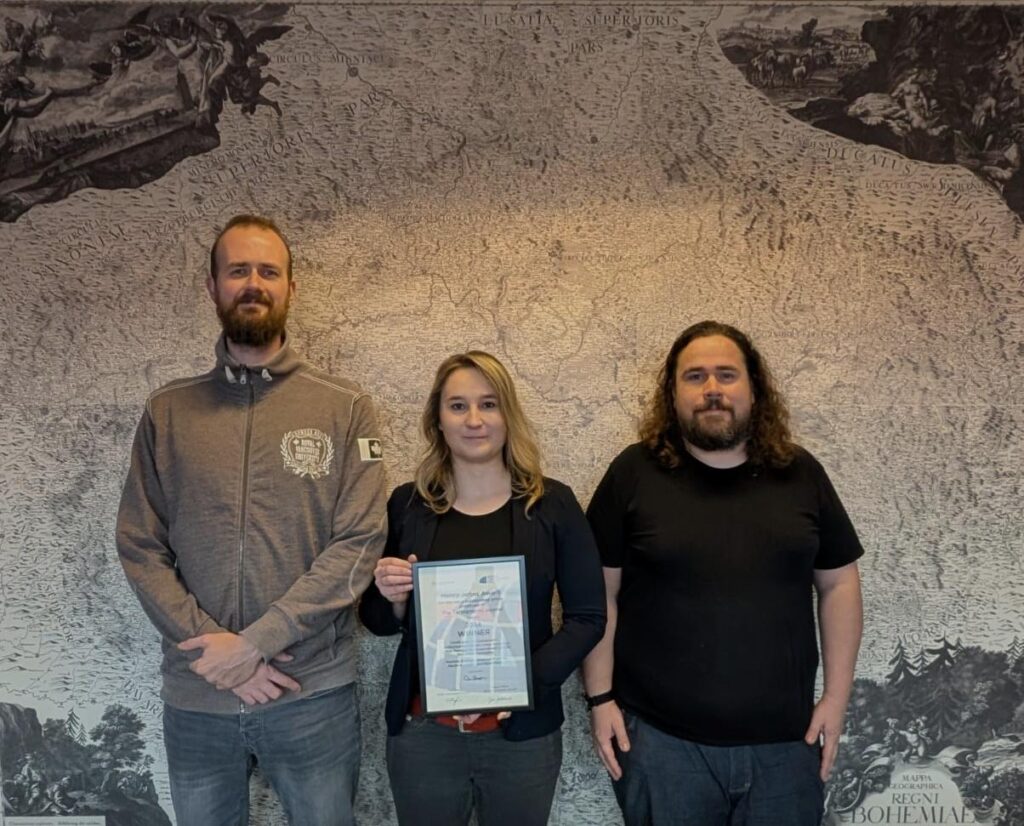
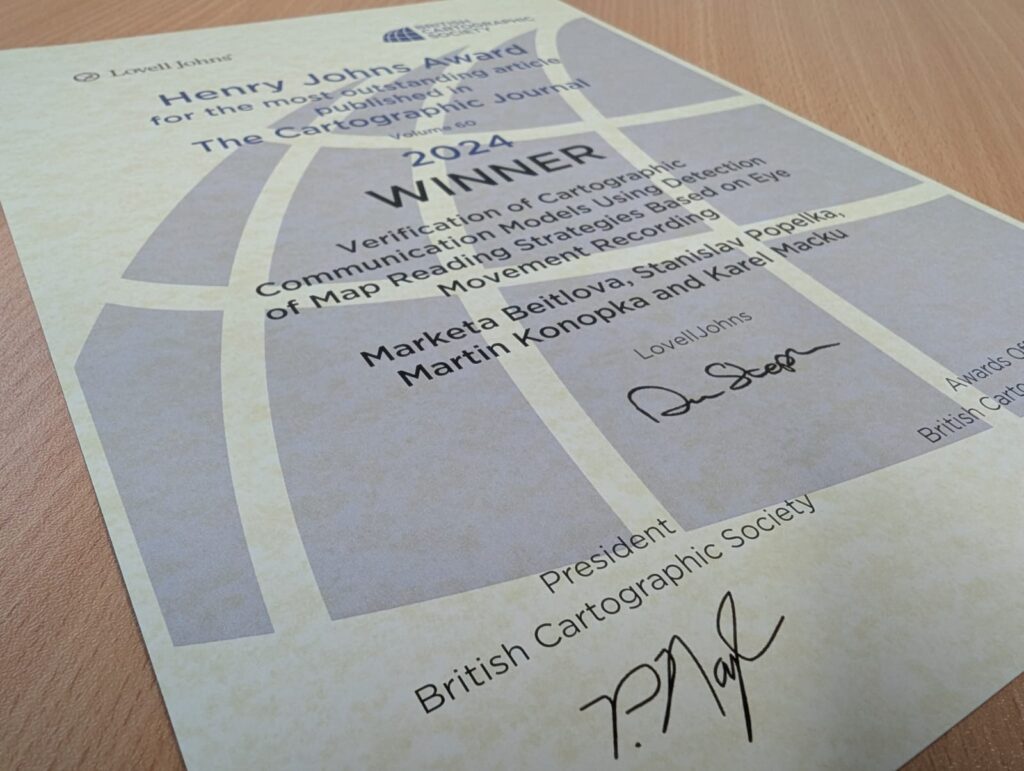
The Architectural 3D Model of St. Wenceslas Cathedral in Olomouc
This unique model was created at the Department of Geoinformatics under the guidance of Dr. Jan Brus as part of the NAKI project “Friedrich Cardinal von Fürstenberg – The Last Aristocrat on the Throne of the Olomouc Archbishops.” The model is exceptional for its illuminated stained glass windows, precisely reproduced using 3D printing to match the originals in the cathedral. Measuring 120x153x96 cm, the model took two months to print and is made up of 35 parts.
The interactive model allows visitors to assemble the cathedral themselves, and thanks to video mapping, they can enjoy it from a fresh perspective. Come and see how modern technology meets history and discover St. Wenceslas Cathedral in an entirely new light!
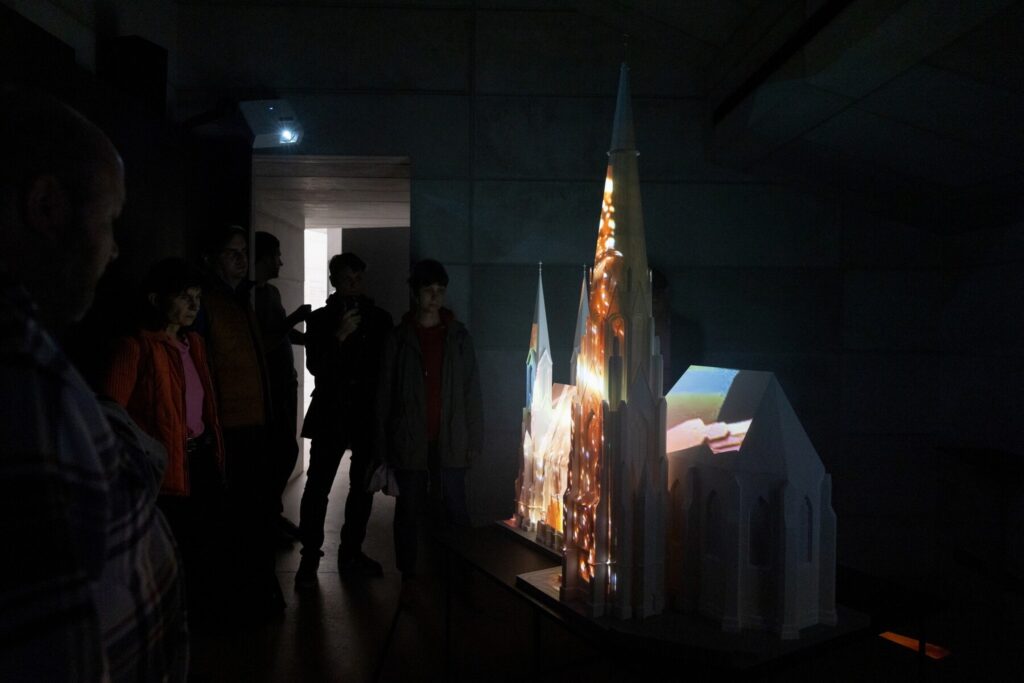




 is Now on Display at the Olomouc Archdiocesan Museum!
is Now on Display at the Olomouc Archdiocesan Museum!
GISday 2024 – open for public
Seize the chance to meet us at public events and learn more about studying at our department! Discover the research projects, client work, and collaborations we’re involved in every day. Most recently, we connected with the community at the Maker Faire in Olomouc, where we enjoyed great interest from children and potential partners alike.
Coming up on 20.11.2024 is our traditional GIS Day – a day dedicated to geoinformatics! In the morning, we’ll welcome schools, and for the first time, we’re opening our doors to the public in the afternoon! Join us at 16:30 for engaging presentations from partners, including the Olomouc Region, the Statutory City of Olomouc, local firefighters, representatives from private geoinformatics firms, and many others.
This year, we’re also part of Olomouc Design Days and Geography Days. Stay tuned for more details on our website: https://www.geoinformatics.upol.cz/for-public/gisday/
Non-Invasive Technology for Deception Detection
New Research Alert: Non-Invasive Technology for Deception Detection
Curious about how infrared thermal imaging (fITI) and eye-tracking could be applied to detect deception in everyday conversations?
Check out our latest study published in Current Psychology (Springer Nature) where Martin Seitl, Stanislav Popelka, Daniel Dostál, and Petra Hypšová dive into this topic!
Analyzing facial temperature and eye fixations, we identified unique physiological and behavioural cues in spontaneous and prepared deception scenarios.
Key Findings:
Facial Temperature: There were no significant temperature shifts during deception, but spontaneous scenarios showed higher forehead and cheek temperatures due to increased cognitive load.
Eye Fixations: During prepared lies, liars increased eye contact, while in spontaneous deception, participants reduced eye contact with the interviewer.
To understand why these patterns emerge, read the full study!
https://link.springer.com/article/10.1007/s12144-024-06840-6
Hackathon 2024 knows its winners
The Hackathon knows its winners!
This weekend, 10 teams and one individual came together at Envelopa Hub to work on exciting projects using open data, and the results were amazing!
Students and professionals competed in multidisciplinary teams, presenting their ideas to an expert jury in the Aula of the Faculty of Science at UP.
1st Place – NTL-CUP: A smart parking app for smart cities – identifying free parking spots using camera systems.
2nd Place – DataQ – Safevision: A system for detecting armed attackers using surveillance cameras.
3rd Place – Střelci – Neboj App: A navigation app that finds the safest route home.
Special Awards:
Best Business Potential Award (ICOK): Team TRIX – A chatbot proposal for the Olomouc Tourism website.
Best Student Team Award (UPOL): Team Střelci – Neboj App.
A huge thank you to all participants, mentors, judges, and partners – we couldn’t have done it without you!





